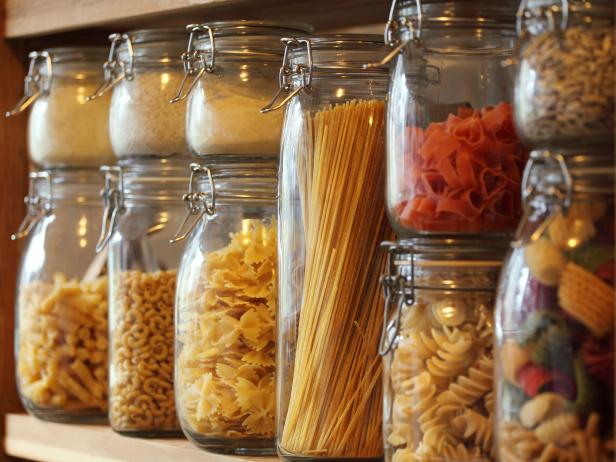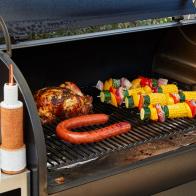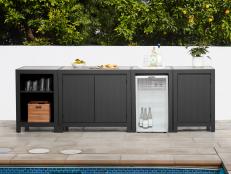Are Your Food-Storage Methods Making You Eat More?

Sumners Graphics, Inc.
Is the way you store your food at home making you fat? Scientists at Ohio State University have looked into how the home environment may influence eating behaviors — and found that there may be a correlation between where you keep your food and how likely you are to be obese.
The researchers, led by psychologist Charles Emery, went into the homes of 100 study participants — half medically obese, half not — and noted the kind of food people kept around, how much they kept and where they kept it.
They found that obese people kept less healthy food at home and had food visibly distributed at more locations around the house than those who were not obese. Those who were obese also tended to have “more long-term food storage capacity in number of refrigerators … and freezers,” according to the study results, published in the International Journal of Obesity.
While the study did not establish causality — determining whether people were prone to eat more because they kept food around and in sight in whatever room they happened to be in, or whether they kept food around and in sight because they were prone to eat more — Emery told NPR’s The Salt, "It doesn't take a big leap of faith to say if you're spending most of your time where there's more food sitting out to see, that's going to make it harder not to eat.”
True enough (and something many of us know from personal experience). The study also found that those who were obese were more likely to suffer from depression and lower self-esteem and had more difficulty controlling their eating in various situations. Again, that was just an observation, nothing definitively causal, though the study does support previous research indicating that people who store their breakfast cereal on the kitchen counter tend to weigh 20 pounds more than those who don’t.
Be right back. Got to go move my breakfast cereal off the counter now.
Amy Reiter is a writer and editor based in New York. A regular contributor to The Los Angeles Times, she has also written for The New York Times, The Washington Post, Glamour, Marie Claire, The Daily Beast and Wine Spectator, among others, as well as for Salon, where she was a longtime editor and senior writer. In addition to contributing to Healthy Eats, she blogs for Food Network’s FN Dish .































